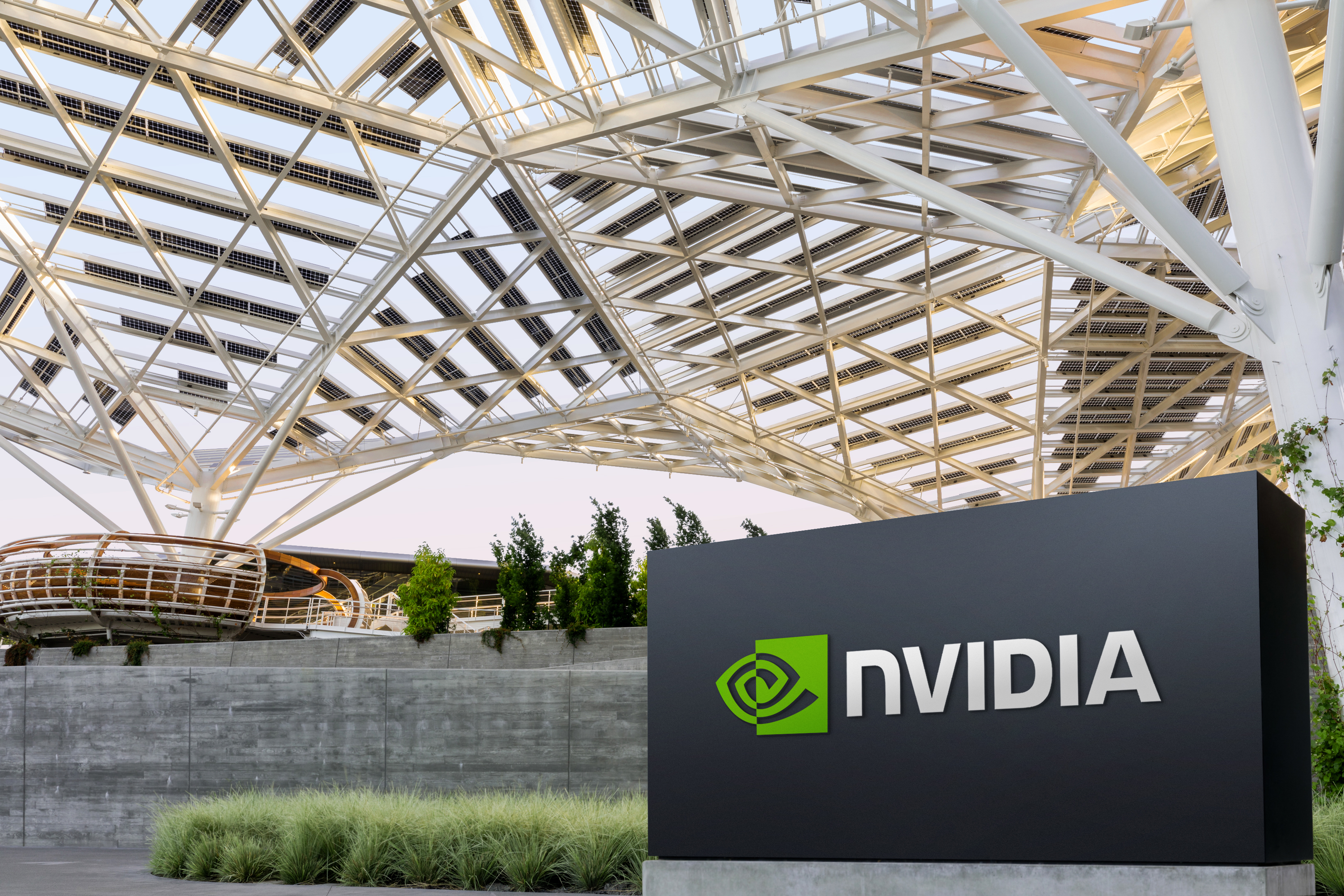ETFs with heavy weightings to Nvidia are booming this week after the chipmaker joined the pantheon of companies including Apple and Amazon with a $1trn market cap.
The share price has surged over 35% since the company announced stronger-than-expected Q1 results last week which saw sales of $7.2bn versus forecasts of $6.5bn and net income of $2bn ahead of $1.5bn predictions.
The growth has been driven by the company’s focus on artificial intelligence (AI) which it forecasted will drive “surging demand”.
The company subsequently announced a number of AI-related products over the weekend that helped push the company’s market cap past the mythical $1trn mark.
“As we find ourselves on the cusp of the generative AI era, Nvidia stands in a prime position to take the reins,” Ben Barringer, equity research analyst at Quilter Cheviot, said.
“This industry-wide uptick reinforces the overarching trend – the generative AI sector is growing at an unprecedented rate, and companies like Nvidia are leading the charge into this arena.”
Thematic ETFs – most notably with a focus on semiconductors, metaverse and artificial intelligence – have soared on the news due to their heavy weighting to Nvidia.
The tech giant has many different business areas which justifies its inclusion in different thematic ETFs ranging from the metaverse to future mobility. Here are the UCITS ETFs with the largest weighting to the company.
Semiconductor ETFs
Nvidia is the top holding in all four of Europe’s semiconductor ETFs, however, each strategy has varying degrees of allocation.
The four ETFs are:
CHIP holds the largest exposure to Nvidia across all UCITS ETFs with a 22.5% weighting. This weighting is driven by the ETF’s less stringent weighting rules versus its competitors.
For example, HNSS tracks the Nasdaq Global Semiconductor index which is modified market-cap weighted meaning no security can exceed 8%. It currently has a 10.2% weighting to Nvidia which will be brought down to 8% at the next rebalance date.
It is a similar story for Europe’s largest semiconductor ETF with $1bn assets under management – SMH – which caps each constituent at 10% to avoid concentration risk.
SMH currently only has a 13.5% weighting to Nvidia thanks to this rule despite tracking an index of just 23 stocks, the MVIS US Listed Semiconductor 10% Capped ESG index.
The semiconductor ETF with the broadest basket is SEMI which tracks the MSCI ACWI IMI Semiconductors & Semiconductor Equipment ESG Screened Select Capped index of 255 companies. Despite this, it has an 11.5% weighting to the giant.
Other thematic ETFs
The company’s strong Q1 results has been aided by the boom in AI models such as ChatGPT that caused a stir when launched last year.
Among the artificial intelligence ETFs listed in Europe, the Global X Robotics & Artificial Intelligence UCITS ETF (BOTG) and the Xtrackers Artificial Intelligence & Big Data UCITS ETF (XAIX) have the largest exposures with 8.8% and 7.5% weightings, respectively.
This is driven by the decision to select a market-cap weighted index instead of implementing an equally weighted design which puts less emphasis on the performance of individual companies.
Elsewhere, metaverse ETFs such as the iShares Metaverse UCITS ETF (MTAV) and the Franklin Metaverse UCITS ETF (FLRA) both have weightings of over 7%.
This is also the case for other thematic ETFs including the iShares Digital Entertainment and Education UCITS ETF (PLAY) and the Xtrackers Future Mobility UCITS ETF (XMOV).
Outlook
Overall, Nvidia has helped drive the performance of the US stock market this year as investors become increasingly focused on the impact of AI on society.
However, valuations in the AI space are now trading at significant multiples, giving the sector “little margin for error”, according to Russ Mould, investment director at AJ Bell.
“For the moment, though, the AI hype train is not only rolling but delivering,” Mould continued. “However, such multiples leave little margin for error should anything go wrong, and not everything is necessarily rosy for the global semiconductor industry.
“Nvidia’s successes are helpful, but the US stock market is already relying upon it and a narrow handful of other firms, notably Meta, Amazon, Apple, Netflix, Alphabet and Microsoft, for the gains forged so far in 2023 and overall market breadth remains poor.”


